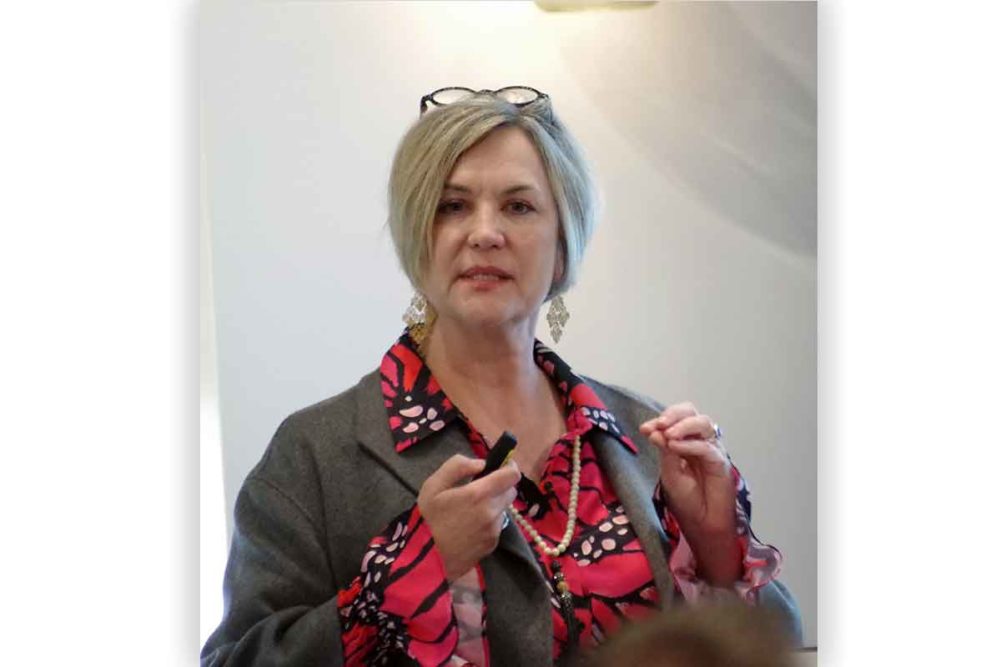KANSAS CITY, MO. – Julie Anna Potts, president and chief executive officer of the North American Meat Institute (NAMI), and a group of NAMI team members came to Kansas City, Mo., to engage an audience in a robust discussion about the many challenges facing the food industry. The Kansas City Agricultural Business Council hosted Potts during a luncheon and discussion session held March 24.
Her tenure although brief has been eventful. Potts was officially elected NAMI president in October 2018. A massive fire at the Tyson Foods beef plant in Holcomb, Kan., broke out Aug. 9, 2019, and the pandemic shut down the United States by March 2020.
“I really hadn’t set foot in a slaughter facility before I came on this job, so I was still very much learning the basics — and then the pandemic hit and the Holcomb fire before that,” she said.
“It’s been a journey; I feel that we’ve all lived about seven or eight years in the last couple,” she added. “But I’m so grateful for this industry and I mean this industry – animal agriculture from the very beginning on the ranch or on the farm or on the feedlot all the way through to retail.”
Despite so many issues impacting the industry, Potts noted that a common mission uniting the animal agriculture industry is “…an effort to provide wholesome meat and poultry to the ultimate consumer through our customers in the supply chain and do it in a way that is building trust across our consumers and with all of our stakeholders – from government policymakers to investors and bankers,” and all constituents the industry answers to.
The Protein PACT is about engaging a dialogue with consumers and stakeholders by proving the successes of animal agriculture. Potts said the initiative is a strategy and a partnership “for how to talk about the issues around sustainability and animal welfare, food safety, nutrition and all of the things that are important to consumers” but for which the processing sector has had a defensive posture in the past.
“Ultimately, when my 19-year-old daughter walks into the grocery store, she doesn’t have to think about it,” Potts said. “She knows the animal protein that she enjoys is ethically produced, is sustainably produced; that’s the big picture.”


